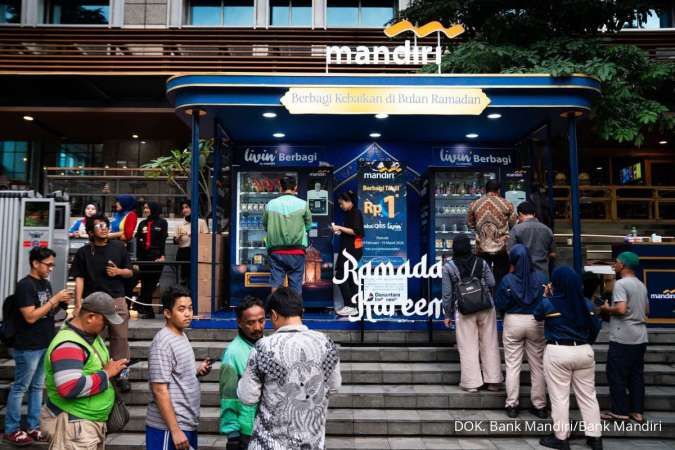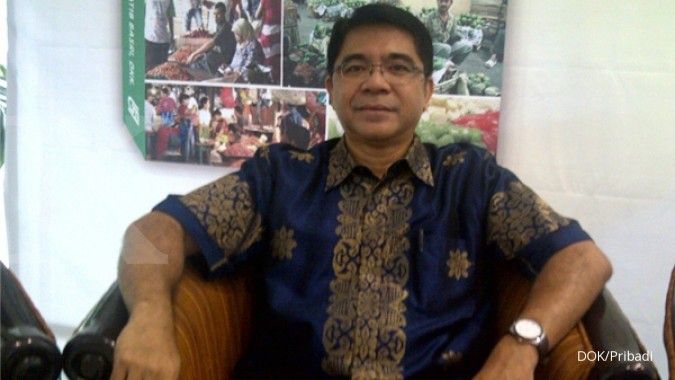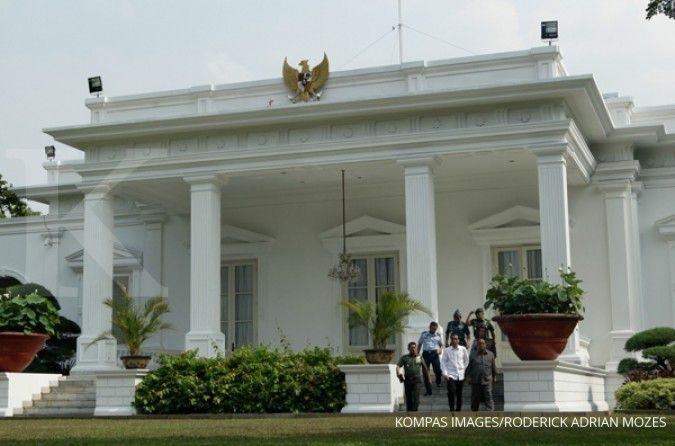JAKARTA. Following his inauguration on Thursday, new Investment Coordinating Board (BKPM) head Franky Sibarani promised to further simplify investment permits as his top priority in a bid to attract more investment. Streamlining whole licensing procedures under the BKPM as the single body to handle investment permits is one of President Joko “Jokowi” Widodo’s targets, a service he expects to be in place within six months. “The first place for the President’s blusukan [impromptu visit] was the BKPM, and this means the biggest task to enhance our competitiveness [as an investment destination] will be to shorten the licensing process. Our expectation is that the process must be quick, simple, transparent and integrated,” said Franky, 49 years old, previously vice chairman of business lobby group the Indonesian Employers Association (Apindo). While the principle investment permit could be issued by the board quickly, construction and operational licenses engaging multi-stakeholders were still the hardest challenges to address, an issue now under his authority to manage, he added. Franky, an executive at giant food and beverage producer Garuda Food, takes the helm as BKPM chief from Mahendra Siregar at a time when the economy has grown only slightly above 5 percent, its slowest pace in nearly five years. At the same time, the President also installed Golkar Party politician Nusron Wahid as the head of the Agency for the Placement and Protection of Indonesian Migrant Workers (BNP2TKI) and Gadjah Mada University former rector Sofyan Effendi as head of the Civil Apparatus Committee (ASN). Both foreign and local business people have welcomed Franky’s appointment as the board’s chief, saying he was a capable figure for the post and could carry out much-needed reforms. American Chamber of Commerce (AmCham) director Brian Arnold described Franky as a “well-respected” figure in the business community and said his leadership experience with Apindo would serve as a great asset as he understood factors affecting the investment environment in Indonesia. “One of the key issues that inhibits investment is regulatory uncertainty. As a businessman, Pak Franky understands this and we are confident that reducing uncertainty and regulatory complexity will be one of the BKPM’s key priorities under his leadership. This could improve overall Indonesian investment and the business landscape and help drive Indonesia’s future GDP growth,” Arnold told The Jakarta Post. Secretary general of the Jakarta Japan Club (JJC), Yoshida Susumu, said that Franky’s background as an executive of Garuda Food, which had experience of setting up a joint venture with a Japanese beverage company, made him aware of bottlenecks hampering business, particularly foreign direct investment (FDI), in Indonesia. “From Japanese companies’ perspective, we expect that the BKPM will continue to improve the business climate, including cutting bureaucratic red tape and reducing the procedure for business permits to invite more FDI from Japan. In addition, we hope he will introduce incentives to help double annual investment, as set by the President,” he said. Apindo chairman Sofjan Wanandi said that the daunting tasks of the new BKPM chief also included attracting investment in the upstream industrial sectors, along with generating investment from domestic investors. “We may offer incentives for the upstream industries that produce raw materials and intermediary goods to reduce imports. For so long, we have been an assembler and now we must have it all — upstream and downstream industries both,” he said. Indonesian Chamber of Commerce and Industry (Kadin) deputy chairman for international cooperation and trade, Chris Kanter, underlined that as a figure closely working with government institutions to enhance the investment climate, Franky knew the exact bottlenecks and that now it would be his time to solve the issues from within. “I know he can do it. He’s always been a fighter. He used to push from outside. Now it’s time to fight from inside,” he said. (Linda Yulisman)
BKPM vows to help investors
JAKARTA. Following his inauguration on Thursday, new Investment Coordinating Board (BKPM) head Franky Sibarani promised to further simplify investment permits as his top priority in a bid to attract more investment. Streamlining whole licensing procedures under the BKPM as the single body to handle investment permits is one of President Joko “Jokowi” Widodo’s targets, a service he expects to be in place within six months. “The first place for the President’s blusukan [impromptu visit] was the BKPM, and this means the biggest task to enhance our competitiveness [as an investment destination] will be to shorten the licensing process. Our expectation is that the process must be quick, simple, transparent and integrated,” said Franky, 49 years old, previously vice chairman of business lobby group the Indonesian Employers Association (Apindo). While the principle investment permit could be issued by the board quickly, construction and operational licenses engaging multi-stakeholders were still the hardest challenges to address, an issue now under his authority to manage, he added. Franky, an executive at giant food and beverage producer Garuda Food, takes the helm as BKPM chief from Mahendra Siregar at a time when the economy has grown only slightly above 5 percent, its slowest pace in nearly five years. At the same time, the President also installed Golkar Party politician Nusron Wahid as the head of the Agency for the Placement and Protection of Indonesian Migrant Workers (BNP2TKI) and Gadjah Mada University former rector Sofyan Effendi as head of the Civil Apparatus Committee (ASN). Both foreign and local business people have welcomed Franky’s appointment as the board’s chief, saying he was a capable figure for the post and could carry out much-needed reforms. American Chamber of Commerce (AmCham) director Brian Arnold described Franky as a “well-respected” figure in the business community and said his leadership experience with Apindo would serve as a great asset as he understood factors affecting the investment environment in Indonesia. “One of the key issues that inhibits investment is regulatory uncertainty. As a businessman, Pak Franky understands this and we are confident that reducing uncertainty and regulatory complexity will be one of the BKPM’s key priorities under his leadership. This could improve overall Indonesian investment and the business landscape and help drive Indonesia’s future GDP growth,” Arnold told The Jakarta Post. Secretary general of the Jakarta Japan Club (JJC), Yoshida Susumu, said that Franky’s background as an executive of Garuda Food, which had experience of setting up a joint venture with a Japanese beverage company, made him aware of bottlenecks hampering business, particularly foreign direct investment (FDI), in Indonesia. “From Japanese companies’ perspective, we expect that the BKPM will continue to improve the business climate, including cutting bureaucratic red tape and reducing the procedure for business permits to invite more FDI from Japan. In addition, we hope he will introduce incentives to help double annual investment, as set by the President,” he said. Apindo chairman Sofjan Wanandi said that the daunting tasks of the new BKPM chief also included attracting investment in the upstream industrial sectors, along with generating investment from domestic investors. “We may offer incentives for the upstream industries that produce raw materials and intermediary goods to reduce imports. For so long, we have been an assembler and now we must have it all — upstream and downstream industries both,” he said. Indonesian Chamber of Commerce and Industry (Kadin) deputy chairman for international cooperation and trade, Chris Kanter, underlined that as a figure closely working with government institutions to enhance the investment climate, Franky knew the exact bottlenecks and that now it would be his time to solve the issues from within. “I know he can do it. He’s always been a fighter. He used to push from outside. Now it’s time to fight from inside,” he said. (Linda Yulisman)




